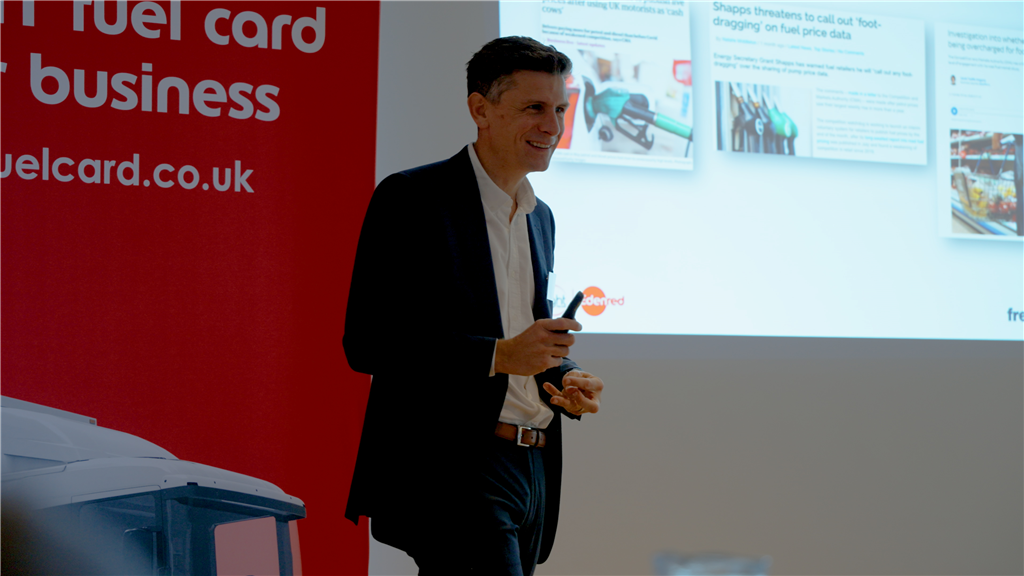Neville Street
About The Right Fuelcard Company
We’ll find the right fuel card for your business needs and circumstances
Why Right Fuel Card: Edenred?
Independent , convenient, trusted. Our fuel card services enable you to save you time as well as money. We aim to make fuel purchases for your business as simple as possible!
24/7 account management - Our online account management services mean you can always access your fuel usage information.
- Order additional cards
- Cancel lost cards quickly and easily
- Easily view, download, and print your invoices
Tailored solutions - We offer a range of fuel cards to match your unique requirements, always at competitive prices. We’re independent. We work with a wide range of fuel brands and networks, covering around 90% of UK forecourts. So when it comes to sorting your fuel we'll find you a deal to meet your specific business needs and circumstances.
Fraud protection - We automatically protect from fraud to a maximum of £5000 per account. T&Cs apply. See website for details
- 24/7 card vlocking requests
- PIN for each card
- Card limits
- Control over what type of products can be purchased
Right Protect - A new and EXCLUSIVE premium service from Right Fuel Card. Upgrade to get access to our dedicated phone helpline to get specialist legal advice in the event of traffic accident.
- 24/7 Phone line - Incidents don't just occur between 9am and 5pm. That's why we make sure legal support is available around the clock
- Coverage across Great Britain - No matter where you are across England, Wales or Scotland.
- Low cost - At only £2 per month per card, you could get 24/7 legal access for less than £25 per vehicle for the full year!
Business Fuel CardsWhatever size, whichever industry, fuel cards are our speciality. If you run a business, finding ways to save on costs will be as much of a priority as making more money. Fuel cards for businesses are a great way to do just that; save money on your businesses petrol or diesel spends.
Looking for the best fuel card in the UK? With so many fantastic fuel cards to choose from, all of which will help to save your business time and money, it's difficult to know which is the best fuel card for you. If you’re thinking about using fuel cards for your business, you’ve probably already looked at some other fuel card providers. Thankfully, you can stop your search. You've found the best fuel card provider in the UK, now it's our turn to help find you the best fuel card for your business. On top of having a fantastic range of fuel cards that will save you time and money, we offer unrivalled customer service that gets things sorted and makes sure all your queries are answered quickly, so you can concentrate on more important things.
Fuel cards for sole traders and the self-employed
Save time and money that you can invest elsewhere in your business. Fuel cards aren't just for big fleets. We're specialists in finding options for sole traders spending as little as £250 per month.
Gallery
News
According to the survey, just over half of haulage and transport firms who took part felt positive or very positive about the next 12 months. Whilst this is an improvement from last year, says Right Fuel Card – when less than 1 in 5 businesses in the industry reported feeling optimistic – clearly challenges remain.
To understand these challenges better, the company has been working closely with Freightlink Europe and LMP Legal to examine some of these challenges in depth.
A joint event in September, attended by both hauliers and others connected to the transport industry, stressed the need for additional control measures when using agency drivers and explained how drivers, and transport operators, can be better supported should a driver be involved in an incident.
Lesley O’Brien OBE, MD of Freightlink Europe, highlighted the fact that poor compliance when recruiting agency drivers can have a significant impact on operators, including putting an operator’s license at risk.
O’Brien recommended a range of measures which could be put in place prior to recruitment to ensure due diligence of the driver and agency, thereby providing increased protection for the operator should something go wrong.
Expanding on this theme, Charlotte le Maire, Founder and Partner of LMP Legal, drew attention to the increased penalties faced by drivers since a change in the law last year.
However, it’s not just drivers who are at risk; transport operators could also face investigation in terms of policies, training, procedures, and compliance, should an incident occur.
Attendees were encouraged to consider what legal support they had in place, particularly during the ‘golden minutes’ following an incident where a driver is most vulnerable.
All attendees agreed, though, that one of the largest, and increasingly most unpredictable concerns is the cost of fuel.
After months of falling prices, the rising wholesale oil price, and falling strength of the pound against the dollar, is expected to push fuel prices higher over the winter months, says Right Fuel Card.
More than ever, the company contends, hauliers should be evaluating whether a switch in fuel card, or fuel card supplier, would be beneficial.
David James, director at Right Fuel Card has emphasised that whilst price would always be a key factor, hauliers should also be considering the convenience of the card network they use, stating, “As an independent reseller, we’re able to be impartial and ensure that the card and network we recommend to each customer really is right for their needs.
“Fuel card administration should take an operator just a few minutes but picking the wrong card or network can cause additional time and money spent on unnecessary admin, as well as creating additional costs.”
Right Fuel Card says it aims to help businesses in the haulage and transport industry reduce fuel purchase administration by matching them with the right card and network.
Most sectors are feeling positive about the next 12 months but the building, construction and engineering industry are particularly confident. This industry still has reservations about alternative fuels; however, steps are being made to combat the current barriers that are preventing the switch to greener technology.
Is the construction industry booming?
According to our survey, 75% of businesses in the building, construction and engineering industry feel optimistic about the future. This is a big improvement from last year when only 45% of respondents had a positive outlook. Although there are various challenges, such as rising costs and a skilled labour shortage, this industry continues to adapt and grow.
Commercial building activity on the rise
Unlike some industries, businesses working in building, construction, and engineering were able to continue during the outbreak of Covid-19. Demand for building services remained high throughout the pandemic as homeowners, in particular, looked to improve their domestic space as homeworking boomed. Although this is now starting to plateau, there are still numerous opportunities available, with commercial building activity, in particular, experiencing growth.
In addition, the UK Government recently committed to building one million houses over the next 2 years which will provide a steady workload and income for businesses in this industry. They’ve also pledged to remove obstacles in the planning system to make it easier and faster for builders to progress with housing developments. With the support of the Government and local authorities, the building, construction, and engineering industry is expected to continue to flourish in the future.
Increasing costs across the board
The future looks bright for those in the building, construction, and engineering industry, however, there are still challenges that need to be overcome. One of the main concerns that respondents in this survey raised was increasing costs. Rising inflation and sky-high interest rates are deterring consumers from purchasing new homes and other buildings, so businesses are offering discounts and upgrades to persuade hesitant buyers. Profits are being impacted as a result, causing some businesses to downsize future projects.
Following Russia’s invasion of Ukraine, the cost of raw building materials has increased significantly as the rise in fuel costs impacted the cost to import. In addition, the higher demand has made the availability of these materials uncertain, making it hard for businesses to predict future costs.
Skilled labour shortage
Although many businesses in the building, construction, and engineering industry are optimistic about the future, this survey revealed that the skilled labour shortage was of increasing concern. The construction industry has battled a shortage of labour for the last few years as recruitment struggled to keep up with the ever-growing demand. This has been intensified by an ageing workforce, with 21% of individuals in this industry aged 55 and over. Pressure is therefore mounting on businesses to find new skilled workers to replace those that will soon be retiring.
The decarbonisation of the construction industry
Recent data shows that the construction industry directly contributes to around 10% of the UK’s CO2 emissions, so it’s becoming increasingly important for businesses in this sector to focus on decarbonisation. For our customers, it’s clear that this is not yet a priority with 95% stating that they won’t move to alternative fuels in the next 12 months.
Cost was the main barrier for businesses in the building, construction, and engineering industry but there were also reservations about sustainability and the environmental impact that alternative fuels actually have.
Fuels of the future
Nevertheless, progress is being made in the wider construction industry with many companies, such as Morgan Sindall and Laing O’Rourke, starting to implement zero-emission vehicles on their sites. Electric vehicles require a sufficient charging infrastructure and are currently unable to travel the long distances often required by businesses, so it’s likely that hydrogen and HVO will instead be the fuels of the future for this industry.
The UK Government’s Renewable Transport Fuel Obligation (RTFO) has been encouraging the use of HVO for over a decade as it produces up to 90% fewer CO2 emissions than regular diesel. It is now the leading low-carbon alternative to diesel for transport, plant, and machinery and doesn’t require businesses to invest in new vehicles.
Although HVO is currently the most accessible alternative fuel for this industry, the use of hydrogen is on the rise. These vehicles can be quickly refuelled and produce z
 UK
UK Ireland
Ireland Scotland
Scotland London
London




















